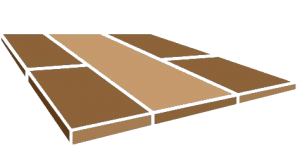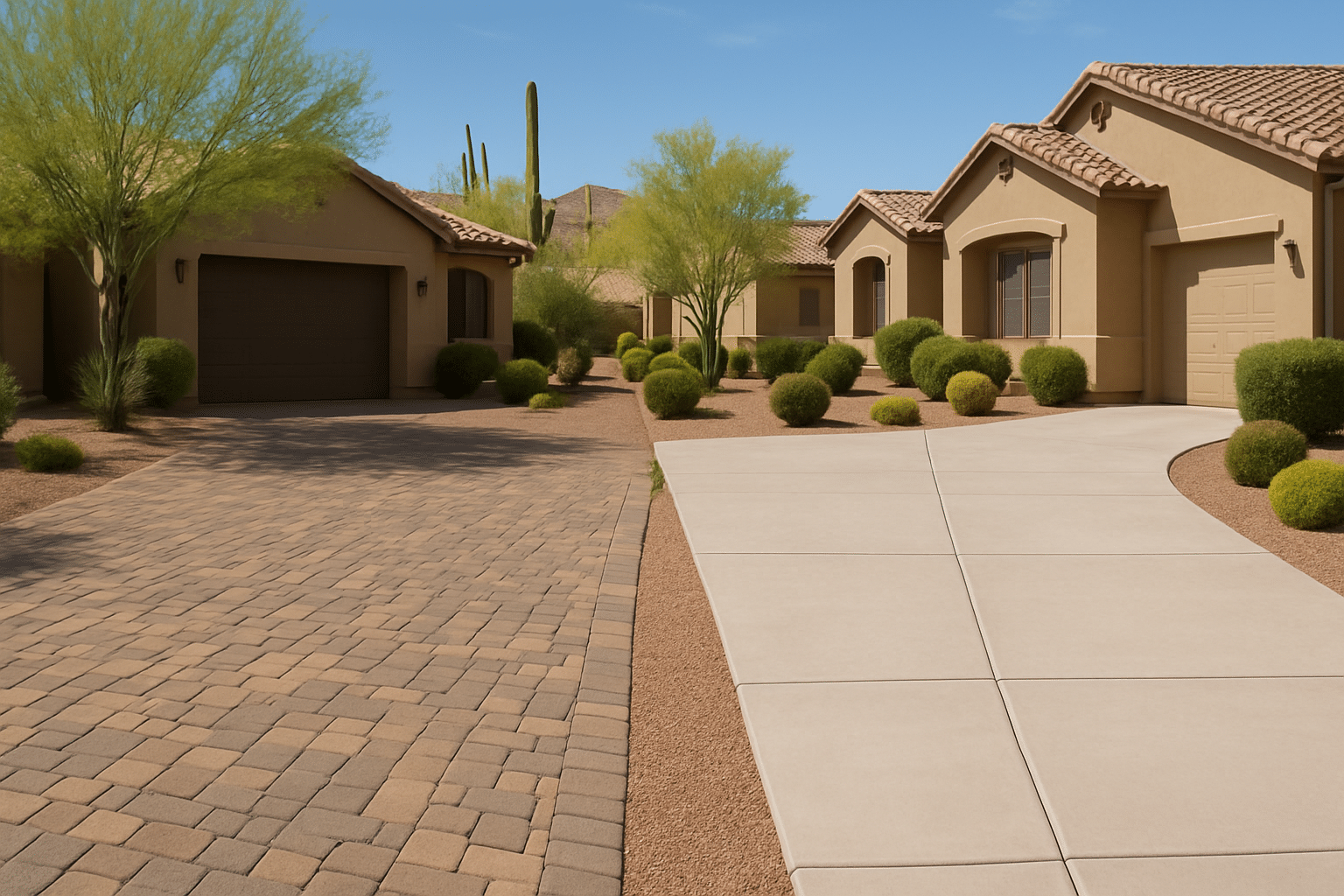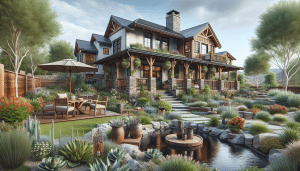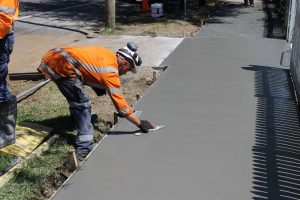Choosing between a **Driveway pavers** look and plain **concrete** feels a little like choosing between a tailored suit and a comfortable T‑shirt: both cover the basics, but they say very different things about your home. If you live in **Gilbert, AZ**, you’re juggling desert heat, sudden monsoons, and a neighborhood vibe that leans toward clean, sun‑friendly curb appeal. This article is for homeowners who want a driveway that lasts, looks good, and honestly makes life a little easier. I’ll walk you through cost, lifespan, maintenance, style, and the practical local stuff—so you can choose with confidence (and a little flair).
Contents
- 1 So what costs more up front? And later?
- 2 Durability and maintenance — what’s the real difference?
- 3 Looks matter—yes, even to neighbors and appraisers
- 4 Installation and repair — patience pays off
- 5 Drainage, heat, and local climate quirks
- 6 Design flexibility — because personality matters
- 7 Which should you choose for Gilbert, AZ?
- 8 Quick checklist to help decide
- 9 Ready to talk specifics? We can help
So what costs more up front? And later?
Here’s the thing: **concrete** usually wins the short‑term wallet battle. A plain poured concrete driveway typically costs less to install than a well‑laid **driveway pavers** surface. But cost isn’t just upfront price. Long term—repairs, stains, and curb appeal—change the math.
Concrete: lower initial price, higher repair frequency. Cracks in Gilbert’s heat? Expect them sooner rather than later, especially if water gets under the slab during monsoon season.
Driveway pavers: higher installation cost, but repairs are often cheaper and less disruptive. Replace one paver, not a slab. And because pavers can be lifted and re‑leveled, freeze‑thaw isn’t the issue here—but UV and sand loss can be.
Durability and maintenance — what’s the real difference?
Durability isn’t a simple headline. It’s a story about soil, weather, installation quality, and how much you care for the surface.
Concrete can last 20–30 years if poured properly and if the base and reinforcement are right. But in Gilbert, aggressive sun and temperature swings—plus occasional heavy rains—can lead to surface hairline cracks, spalling, and discoloration. Repairs work, but they can be noticeable unless you resurface the whole slab.
Driveway pavers are modular, which is both their strength and, oddly, a mild nuisance. Individual units absorb movement better. If a tree root lifts a spot or a repair needs doing, you replace a handful of pavers instead of cutting out and repouring a slab. That’s comforting. Maintenance is mostly about keeping joint sand topped up and washing (pressure washing every few years). You might also seal pavers for color protection.
Looks matter—yes, even to neighbors and appraisers
Let me explain. A driveway is one of the first things visitors—and potential buyers—see. It sets expectations.
Concrete offers clean simplicity: smooth, uniform, and modern. You can add stamped patterns or stain to imitate stone, but those finishes can fade or show hairline cracks eventually.
Driveway pavers come in shapes, sizes, and colors—bricklike, cobble, or sleek rectangular pavers. They give texture and depth that frankly lifts a whole front yard. For resale value, pavers often edge out plain concrete because they feel higher end. Homeowners associations in some Gilbert neighborhoods appreciate the polished look, too.
Installation and repair — patience pays off
Installation quality is everything. Poor base prep is the number one reason both systems fail. You can’t skip the compacted base and get away with it—trust me.
Quick comparison table
| Feature | Driveway Pavers | Concrete |
|---|---|---|
| Installation time | Longer (base, patterning) | Faster (pour and finish) |
| Repair ease | Easy; replace pavers | Hard; patching visible |
| Lifespan with maintenance | 30+ years | 20–30 years |
That table simplifies things, sure. But the main idea: pavers take more time to install because the base and patterning matter. Concrete cures faster but may require joints and saw cuts to control cracking. If someone tells you otherwise, ask for photos of past jobs—good contractors, reputable brands like Belgard or Techo‑Bloc for pavers, and well‑finished concrete portfolios tell the real story.
Drainage, heat, and local climate quirks
Gilbert weather throws a few curveballs. Steady sun and little rain most of the year, then sudden heavy storms. Permeable paver systems let water soak through into a gravel base instead of sending it rushing off—helpful for flash storm management. Concrete, unless designed as pervious, directs water away, which can be fine but sometimes causes pooling or runoff issues at edges.
Heat affects surface color and expansion. Concrete can bleach out faster. Pavers tend to hold color, especially if pigmented, but grout and joint sand can fade. Sealants help both, but they need to be chosen for UV resistance.
Design flexibility — because personality matters
Want a Mediterranean courtyard feel? Or a sleek modern look with straight lines? Pavers give you patterns—herringbone for strength, basket weave for charm, and so on. Stamped concrete tries to mimic this but you’ll often notice the uniform continuity, not the natural irregularity of pavers.
Here’s a tiny tangent: local artists sometimes use leftover pavers to make small garden paths or a quirky border around a saguaro—simple things that make a yard feel personal. It’s a small way to get creative without spending a fortune.
Which should you choose for Gilbert, AZ?
Honestly, there’s no absolute “better.” There’s what works for you. If your budget is tight and you want a clean, quick solution, **concrete** makes sense. If you want lasting curb appeal, easier localized repairs, and more design variety (and you’re willing to spend a bit more), **driveway pavers** are the winner.
One mild contradiction: pavers cost more now, but they can save you money later. That’s not magical—it’s just modular repair and longevity doing the heavy lifting.
Quick checklist to help decide
Choose concrete if: you need a budget‑friendly, simple surface quickly, and you’re fine with periodic resurfacing or repairs down the road.
Choose driveway pavers if: you want style, flexible repairs, and a surface that handles Gilbert’s climate with a bit more grace. Plus, if resale is a priority, pavers often score higher with buyers.
Ready to talk specifics? We can help
If you’re in Gilbert and wondering which path to take, give **Gilbert Paver Company** a call. We’ll look at your yard, talk practical budgets, and show you samples—no high‑pressure sales. You know what? A quick site visit often clears up questions that spreadsheets can’t.
Call us: 480-534-9680
Request a Free Quote by contacting our office or filling out a short form on our site—easy, painless, and tailored to Gilbert homeowners who want lasting beauty without surprises.




